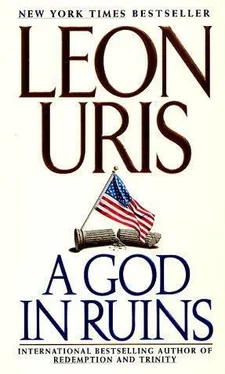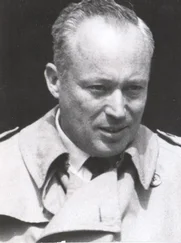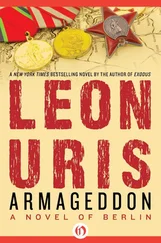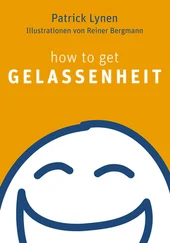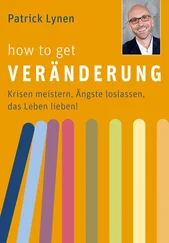Although viciously tortured, Yuri refused to stand down. He was sentenced to twenty-five years in a labor camp in the Gulag Archipelago, a frozen waste on the White Sea. He was swallowed up, vanished, and all contact broken.
The time came to close the orphanage in Bialystok. An illegal emigration agent, a Palestinian Jew named Shalom Katz, set up a daring plan to evacuate Marina, her two helpers, and twenty children.
They rode out of Poland in a closed passenger car ostensibly holding high-ranking German prisoners. By the time they had reached the Czech border, the ruse was discovered, but they dashed into Czechoslovakia.
The Soviets demanded the return of the train to Poland. The British demanded the escapees be taken to refugee camps. The Czech president, Jan Masyryk, son of the father of his country, refused and granted safe passage through his country.
Marina arrived in Palestine by refugee boat just as the Palestine Jews declared independence and were attacked by the Arab nations.
Marina was a rarity the wife of a great Jewish hero, a hero in her own right. Ben-Gurion himself and Golda Myerson believed she would best serve in America, to wake up that nation’s Jews.
Marina traveled the American landscape endlessly to spread the message of the Holocaust and to plead for help in getting survivors to Israel.
Her husband, Yuri, had disappeared in the tundra of the north. Only the occasional rumor surfaced, but no direct word.
Traveling in America on the low side in 1948, she had the same mildewed hotel room, seemed to meet the same welcoming committee, speak to the same small but earnest audience, eat the same homemade meal, fly in the same jerky little airplane, until it all looked like a blur. San Francisco blurred to Oakland blurred to Los Angeles blurred to Phoenix. In those days before jet travel, none of the grand airports had been built. It was a smattering of daredevil pilots’ shows at jerkwater landing strips. The roar of the jet lay yet in the distant future.
She traveled with a huge, neatly wrapped poster depicting her husband,
which was unfurled and hung across the back of the podium. Her
open-ended tour took her into small towns in Pennsylvania and Oregon, where the few quiet Jewish families wanted to listen.
A year passed during which Marina made over four hundred appearances, building a small but active following. She simply burned out. Her life had been one long struggle. And God only knew what news of her beloved Yuri.
A friend from the Israeli embassy convinced her to remain in America. When she had gotten her vitality back, she would be a strong resource among the Jews. For now she just wanted to be alone.
Marina resumed her maiden name of Geller and vanished into a studio apartment in an area of New York City known as the Village. She was unable to make ends meet on her dole. Her knowledge of the Russian language and Russian history made her attractive for a position when she applied at New York University.
Professor David Horowitz, head of Slavic studies at New York University, thought that Marina was an excellent find.
Safely housed and able to meet her bills, Marina allowed the wonderment of New York to seep in. A bit of anticipation arose whenever she knew she would spend a bit of time with David Horowitz. Kind .. . soft .. . his smile and concern penetrated her depression. Soon it was lunches together, right? Just lunches. A social meeting.
Lunches expanded into dinners. Marina was exposed to the gem shows that played in shoe-box off-Broadway houses that dotted The Village. Four months into their acquaintance, a new sound emerged when she broke into laughter during The Fantasticks.
David was much the scholar. No siblings, both parents gone. He had married, had a child, and divorced. His three year-old son, Ben, was his weekends.
What reached Marina most deeply was the sense of peace that emanated from David. He was so unlike her bombastic Yuri Sokolov.
“Why am I comparing?” she cautioned herself. She had known a few men when she was on her speaking tour, but always awakened in the sludge of guilt. What was stirring her up about David was putting her into a compromising situation. She was married and promised, and promised to return to Israel.
Word reached her that all trace of Yuri had vanished. One of his fellow prisoners thought surely that Yuri was dead.
The woman was on the brink of madness when David Horowitz took her into his arms tenderly and led her into a safe place. Yuri was a fighter. David was a lover. She required love.
David’s loft in the Village was a little kingdom of laughter and music and heated scholarly discussion. Teachers knew the place. Students knew the place.
David’s great, great friend was a rogue priest, Father Mario Gallico, who taught Latin and ancient Greek at the university. Father Gallico was at their table twice a week, uninvited but always welcome.
Cardinal Watts of the Brooklyn diocese wanted desperately to mend his priest’s wayward ideas. The cardinal needed him as a strong arm in Brooklyn, a fixer. After watching Father Gallico make a non-pastoral advance at an adoring secretary, the cardinal shipped him to Manhattan and the lady was returned to her husband.
Marina had completely lost her mantle of freedom fighter. David totally filled her. Thoughts of marriage, of children, were not possible. When his son Ben came for Sunday visits, she hugged and loved him like her own .. . but was that enough?
How many years had gone by without a single word from or about Yuri? Over five years. The promise to go to Israel to meet her husband had lost its rationale. Must she grieve forever for a corpse? She became pregnant, and she and David chose to have the baby.
Alexander was born to them in 1950. The bliss of being, of existing, was theirs. On the weekends and for short trips, Alexander’s half brother, Ben, was there. The four seemed family, close and loving.
“Marina!” a man’s voice called.
She turned to see Shalom Katz coming toward her. She smiled and greeted him warmly, covering up her apprehension. He took her arm and pointed at a park bench in Washington Square.
“It’s been years,” she said. “Are you still running emigrants?”
“I’ve retired from Alyiah Bet,” he said, referring to the central underground organization. “I’m an Israeli diplomat at the United Nations. Second secretary, or something like that, in the mission.”
Marina smiled. Shalom was a cop. Cops looked like cops and acted like cops. The Israeli underground cops were a tough bunch.
“What to do?” Marina wondered. Tell him about her new life, as if he didn’t already know? Surely he was bringing her the news of Yuri’s demise. At the same time she wept for Yuri, she would scream out her new freedom.
“Why am I so honored by your visit?” she asked.
“With a real government, we are able to accomplish things impossible in the old days. I can speak to you, of course, completely confidentially?”
She nodded.
“We captured a high-ranking Soviet KGB station chief in Jerusalem. He was disguised as a priest in the Russian Orthodox Church. The Russians wanted him back. I was a negotiator. I gave him a list of Zionists they had imprisoned to exchange. Yuri Sokolov is alive.”
She leaned against Shalom and shook. “How long have you known this?”
“I wasn’t going to inform you until we got an absolute confirmation. We are going to bring out Yuri and two others in exchange for the KGB spy.”
Читать дальше
